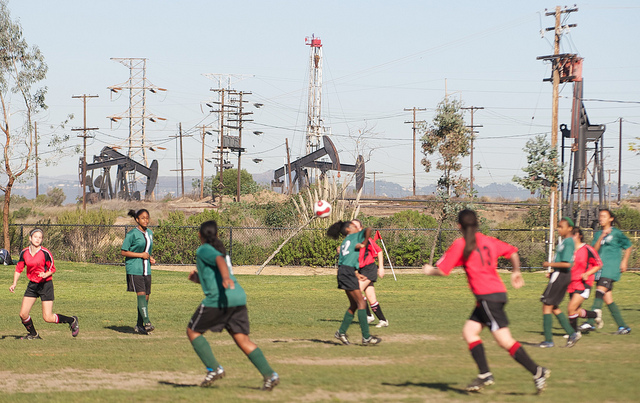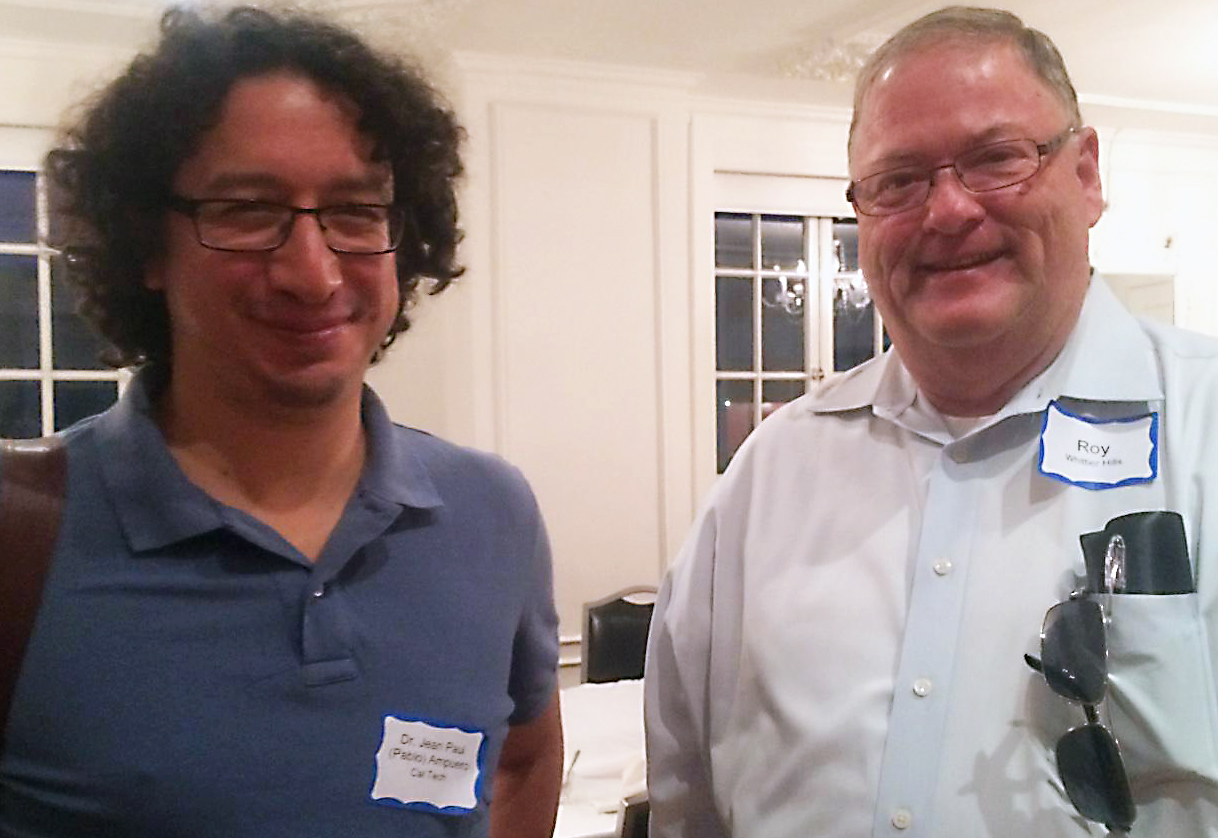When the Earth Shakes, a Southern California Community Turns to Science for Answers
by Nancy Lamontagne

The 1,000-acre Inglewood oil field borders residential areas in Culver City and the area of Los Angeles County known as Baldwin Hills.
When a series of earthquakes struck the Baldwin Hills area of Los Angeles County, California in early 2015, local residents were concerned that the use of hydraulic fracturing and other drilling activities in a nearby oil field might have played a role in triggering the quakes. In response, the community worked with the Union of Concerned Scientists (UCS) and the Thriving Earth Exchange to identify a seismologist who could speak with residents about the relationship between oil drilling activity and earthquakes.
The resulting partnership not only helped to inform residents and calm their fears, but also formed a lasting relationship that continues to deliver the latest seismology research to the community.
Confusion Stokes Concerns
The effort was spearheaded by Irma R. Muñoz, president and CEO of Mujeres de la Tierra, a women’s environmental organization in Los Angeles County. She lives next to the Inglewood oil field — the nation’s largest urban oil field — and began working with the Baldwin Hills Community Advisory Panel, a coalition of residents impacted by the Inglewood oil operations, about five years ago.
“Since the very beginning I found myself being an activist — I was concerned about water quality, air quality and the health of my neighbors,” she explains. “However, I did not have the education nor the background to fully understand the complex studies and presentations given to us by consultants hired by the oil field operator.”
To help fill this need for technical expertise, Mujeres de la Tierra sought and gained funding from UCS for a pilot project that matches Southern California neighborhoods experiencing oil and gas development with experts from local universities.
The situation gained urgency after residents began experiencing earthquakes. “There is a thinking that fracking is responsible for the onset of earthquakes. After the earthquakes, people living close to the oil field were scared and wanted to know what was happening,” says Muñoz.
Building Trust
As part of the pilot project, the Thriving Earth Exchange helped UCS identify an academic expert in earthquakes and their relationship to oil drilling. Jean-Paul (Pablo) Ampuero, Ph.D., an assistant professor of seismology at the California Institute of Technology who studies the physics of earthquakes, turned out to be a perfect scientific partner for the community. Ampuero, who is originally from Peru, was particularly interested in helping the community because of its large Hispanic population.

Jean-Paul (Pablo) Ampuero joins Roy McKee, president of Whittier Hills Oil Watch, at the Mujeres de la Tierra and Union of Concerned Scientists Community Dinner.
He enthusiastically presented his research, together with the limitations of currently available data and models, to the Baldwin Hills Community Advisory Panel, representatives from the oil field operator, and concerned citizens. After the presentation, he answered questions from attendees.
“So far, our studies in the Los Angeles basin do not show evidence of seismic activity induced by oil fields in recent times,” Ampuero says. “Gaining direct contact with decision-makers and community leaders was key to guarantee the efficiency of the effort, making great value out of the limited time I have available for outreach activities.”
Muñoz said the community members listened carefully to the presentation and found Ampuero credible because he was presenting independent research without receiving compensation for his time. After the presentation, people felt better because they understood what causes earthquakes.
However, Muñoz said, the effort would not likely have been as successful if it had been spearheaded by Ampuero or the oil company, rather than a community organization, such as Mujeres de la Tierra, that has already built trust with people in the community. “We were very thoughtful and strategic about the whole process. People know that we are not going to bring in anyone who will exploit them or mislead,” she says. “It is important to have the right group of people introducing the scientists, so that people trust the person who is presenting the information.”
A Lasting Partnership
“Induced seismicity is currently a very hot topic, and this partnership with Irma was a great opportunity to transfer recent knowledge to the public,” Ampuero says. “The experience exposed me to the reality of conflicts and tensions in a community meeting environment, which I feel was very formative.” Ampuero is planning to present new findings to the group in January. Although his first presentation was delivered in English only, Muñoz is working to arrange for him to give a presentation in Spanish when he returns.
The overall goal of the UCS pilot project is to find scientists and technical experts who can provide communities with education and information that they can use as they develop policy or consider issues. “That way we can ask better questions and really get to the root of what we’re trying to figure out,” Muñoz explains. “When scientists or technical experts work in a community they put a human face to the challenge or issue, and this usually means the scientists want to engage even more.”
Nancy Lamontagne is a freelance science communicator and a contributing writer for Creative Science Writing and the Thriving Earth Exchange.
Scientific papers on the research Ampuero presented:
- H. W. Goebel, E. Hauksson, F. Aminzadeh and J.-P. Ampuero (2015). An objective method for the assessment of waste water injection induced seismicity and application to tectonically active regions in central California J. Geophys. Res.; doi:10.1002/2015JB011895
- Hauksson, T. H. W. Goebel, J.-P. Ampuero and E. Cochran (2015). A century of oil-field operations and earthquakes in the greater Los Angeles basin, southern California The Leading Edge, 34, 650-656; doi:10.1190/tle34060650.1





